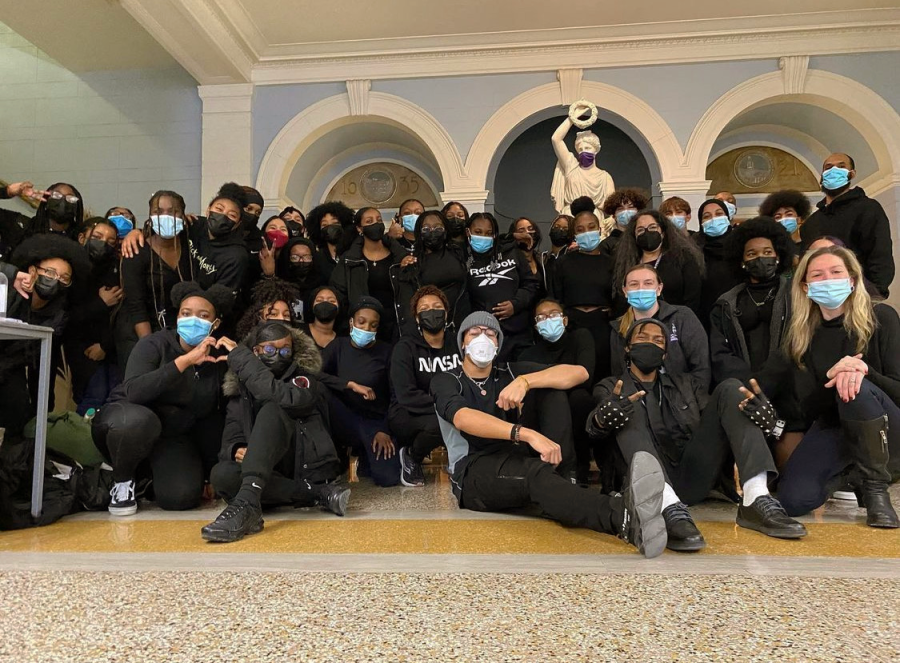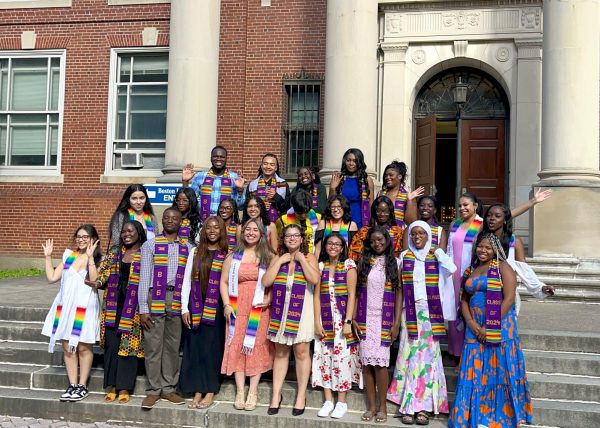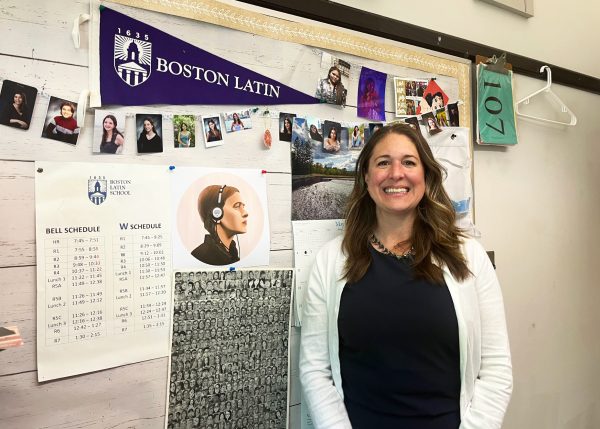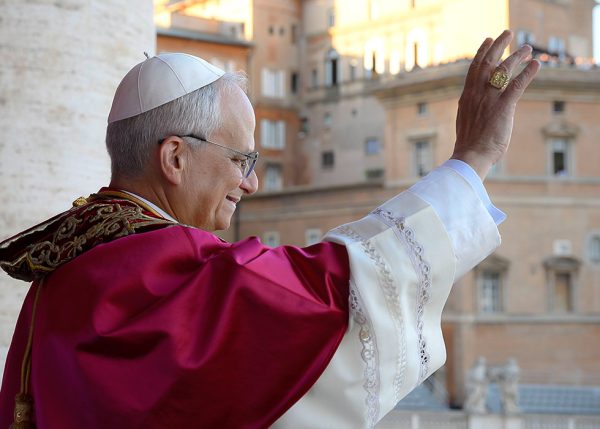Black is Beautiful: Make Black Inescapable
Throughout February, Boston Latin School Black Leaders Aspiring for Change and Knowledge (B.L.A.C.K.) celebrated Black History Month with a variety of activities.
Celebrated annually during February, Black History Month was formerly a week-long celebration started by the Association for the Study of African American Life and History in 1926. In 1976, the United States government officially recognized Black History Month.
One of the most notable events was Spirit Week, which revolved around the theme “Black is Beautiful: Make Black Inescapable.” Students were encouraged to dress up according to a different theme every day from February 7 to 11: “Dress for Success Day,” “Heroic Day,” “Black is Beautiful Day,” “Hip Hop Icon Day” and “Diaspora Day.”
Students showed an overwhelmingly positive response to Spirit Week, with over 100 participants in total. A common misconception, however, was that some students believed that they had to be Black to participate, which was not true.
Mizuki Takano-Cunningham (II), president of BLS B.L.A.C.K., explains, “The goal of Spirit Week was to have a visual representation of people celebrating Black history. […] We wanted to truly ‘make Black inescapable,’ so students will all know what or when Black History Month is.”
Many participants agreed that their favorite day of the week was “Diaspora Day.” Students dressed up in the colors of their flag or carried one with them to show off their heritage.
Ms. Rose Delorme-Metayer, a faculty advisor of BLS B.L.A.C.K., remarks, “‘Diaspora Day’ broke the narrative that ‘we aren’t present as people of color at BLS.’ I felt proud to be a BLS teacher and alum […] seeing people with the Haitian flag.”
The club also held a movie screening of Black Panther on February 11 in the Seevak Room. The blockbuster movie has a predominantly Black cast and director; “The representation,” Takano-Cunningham notes, “feels like a celebration of who we are.”
Hoping to strengthen students’ connections with the Black community in Boston, the club advertised a list of activities that students could complete during February break to support Black-owned businesses. Teachers could also decorate their classroom doors as a competition, of which there were ten entries.
The Martin Luther King Jr. (MLK) Assembly, originally scheduled to take place on January 14, was postponed to March 25 due to the surge of the Omicron variant.
The planning committee decided on the new date for three reasons. First, it is around the time Dr. King met Malcolm X to witness the Senate debate on the passage of the Civil Rights Act in 1964. The march from Selma to Montgomery, Alabama also took place during the week of March 17, 1965. Lastly, Dr. King led a group of protesters on March 28, 1968 in Memphis, Tennessee, a week before his assassination.
At the MLK Assembly, BLS B.L.A.C.K. will present a spoken-word poem written by its members, an excerpt of which the school viewed in January. Each stanza of the poem reflects one of the letters of the BLS Core Values, T.H.R.I.V.E.
“We thought it would be nice to connect BLS to MLK Day and Black History Month by incorporating […] our own core values into the poem,” states BLS B.L.A.C.K. publicist Oriana Dunker (IV).
Ultimately, the goal of the various festivities during Black History Month was to highlight the rich contributions Black people have made throughout American history.
This is because, Dunker notes, school curricula tend to revolve solely around slavery and oppression when discussing Black history, often overlooking their plethora of successes and achievements. She concludes, “It’s really important, especially for Black students, to not have to hear incredibly sad and depressing stories every time we hear about us in history.”






